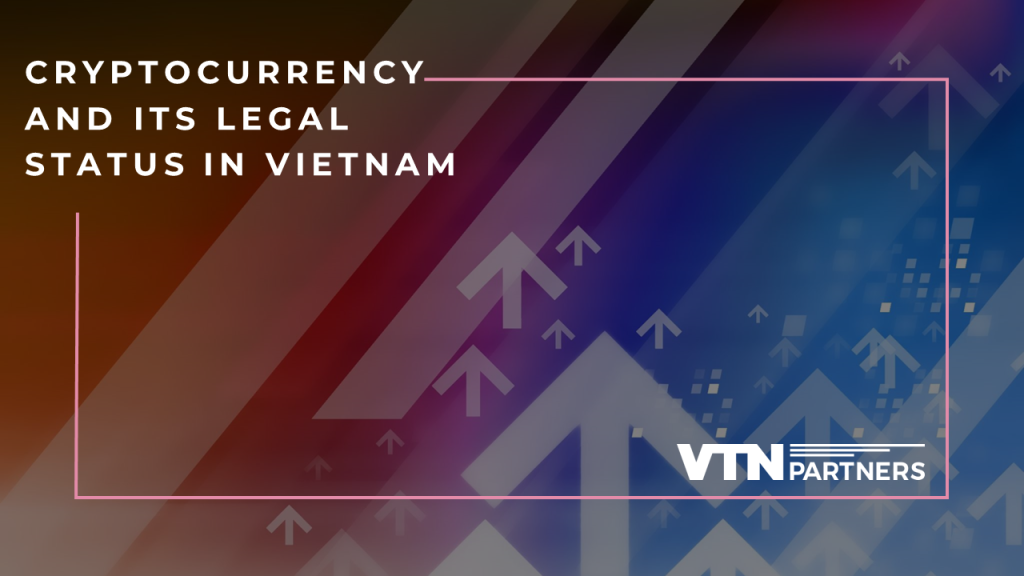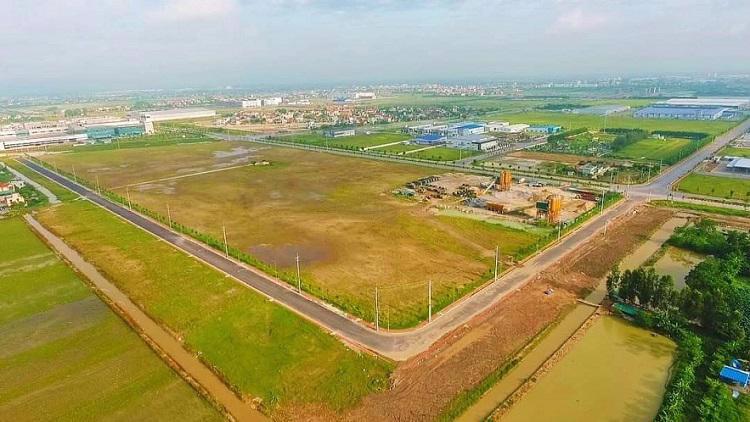This post is written by Tran Thi Hue Khanh and edited by Nguyen Thanh Nghiep
Cryptocurrency has captured the attention of both individual and institutional investors. Cryptocurrency regulation in Vietnam is attracting great public attention and is a decisive factor in the development of this new financial market. This article assesses the current legal status of cryptocurrency and its use in Vietnam, thereby drawing policy implications for the management of this particular asset class in the coming period.
Public interest in cryptocurrencies, such as Bitcoin or Lithium, has recently surged as multiple industries have been exploring how to capitalize off the new technology. As public interests increase, new uses for cryptos develop almost every day. As new uses of cryptocurrencies emerge, so too do its potential legal liabilities.
- What is cryptocurrency?
According to Oxford Languages, cryptocurrency, or crypto, is a digital currency in which transactions are verified and records maintained by a decentralized system using cryptography, rather than by a centralized authority. It exists only in digital form, and although people mainly use it for online transactions, you can make some physical purchases. Unlike traditional money printed only by the government, several companies sell cryptocurrency.
- Are cryptocurrencies legal in Vietnam?
Vietnam, like many other countries, has struggled to regulate and respond to the emergence of cryptocurrencies on its territory. The current Vietnamese legal framework does not acknowledge cryptocurrencies as a legitimate form of payment or currency, nor does it consider them as an asset or a foreign currency.
In general, the laws of Vietnam do not recognize cryptocurrencies as legal means of payment. And in fact, the use of cryptocurrencies has been prohibited in steps by the Vietnamese government. The State Bank of Vietnam (“SBV”) is the state agency responsible for administering currencies and payments and as such, any regulations governing cryptocurrency’s use, and all services related to its exchange, purchase or sale would fall under SBV’s purview. SBV has declared that “cryptocurrencies in general, and Bitcoin and/or Litecoin in particular, are not legal means of payment in accordance with the laws of Vietnam. The issuance, provision and use of cryptocurrencies in general, and Bitcoin and/or Litecoin in particular (illegal means of payment) as currencies or means of payment are prohibited”[1].
Despite this prohibition, Vietnam has been consistently ranked as one of the most active countries in cryptocurrency ownership[2]. The possession of cryptocurrency is not evidently prohibited, such prohibition only imposes on its use as a means of payment within Vietnam. There are no regulations protecting investors in cryptocurrency or governing investment in the sector. The state has actually warned investors about potential risks when injecting money into cryptocurrencies.
The 2015 Civil Code of Vietnam (Article 105.1) defines assets including objects, money, monetary instruments, and property rights[3]. Digital assets, and cryptocurrencies in particular, do not well fit into any of these categories and therefore may not be considered assets per se.
The issue of the status and regulatory approach to cryptocurrencies in Vietnam has sparked different views among the country’s authorities. For instance, the State Bank of Vietnam declares that cryptocurrency is not a lawful means of payment in Vietnam and using them as a payment instrument is prohibited and subject to penalties. On the other hand, the Ministry of Finance considered cryptocurrencies as “property rights” under civil law and classified them as “commodities” that are subject to taxation.
In light of the discrepancy in the opinions of administrative agencies, courts’ decisions are expected to offer a clearer perspective on the wobbly status of digital assets in Vietnam. Regrettably, up-to-date judgments do not appear to be helpful. The two court cases highlighted below exhibit the perplexing views of Vietnamese courts on the matter.
- First court judgment (case No. 16/2017/TLST-HC concerning a challenge against a tax collection decision)
During the years 2008 through 2013, the plaintiff engaged in the buying and selling of Bitcoin on various exchanges. In 2015, the respondent, which is a tax authority, issued a tax collection decision to the plaintiff, demanding that he had to pay income tax of over VND140 billion (approximately USD6 million) on his income generated from Bitcoin trading, in addition to the corresponding VAT amount. The plaintiff countered that he was not required to pay taxes on his profits from Bitcoin trading because Bitcoin is not considered a taxable good or service under applicable laws. He subsequently filed a lawsuit against the defendant at the People’s Court in Ben Tre Province, asking the court to invalidate the tax collection decision. In its ruling, the court noted that Bitcoin is neither a legal means of payment in Vietnam nor recognized as a commodity or service under Vietnamese law. Consequently, the court declared the tax collection decision invalid. While the court declined to rule on whether Bitcoin is considered an asset under Vietnamese law, it did determine that Bitcoin is not subject to taxes.
- Second court judgment (a Bitcoin robbery case)
Recently, the People’s Court of Ho Chi Minh City (“HCMC Court”) held a first-instance trial involving 16 suspects accused of kidnapping and stealing cryptocurrency – Bitcoin. The headman of these suspects is a guy who invested in cryptocurrency under a businessman’s guidance. However, the investment turned out to be a massive failure, which led this headman to believe that the businessman had swindled him. In an attempt to recover his losses, the headman assembled a team to plan a crypto robbery in May 2020. The gang successfully took away 168 Bitcoins and sold part of them for VND 18.8 billion (approx. USD 800,000). Subsequently, the victim reported to the police and the suspects were later criminally accused of the crime of “robbery of assets” under the 2015 Criminal Code. In May 2023, the HCMC Court opened the hearing, and sentenced the headman to life imprisonment, while the accomplices received imprisonment sentences ranging from 9 to 19 years. In addition, the defendants were ordered to pay the money gained from the sale of the Bitcoins (VND 18.8 billion) to the owner.
In this case, the court reiterates that Vietnamese law does not recognize Bitcoin and other cryptocurrencies as lawful currencies or means of payment in Vietnam. Thus, there is no basis for a formal evaluation of the value of the taken Bitcoins as a Vietnamese court normally applies in determining the damage in a criminal case (for a corresponding penalty). However, the court views that because part of the taken Bitcoins has been converted/sold to a VND amount, such converted amount could be seen as the amount of damage to the Bitcoin owner. On these bases, the defendants were sentenced and ordered to compensate the Bitcoin owner for the money they gained from the sale of the Bitcoins.
The HCMC court’s ruling in this case leans towards not recognizing Bitcoin as an asset. If the court considered bitcoin as an asset, they would have issued a sentence based on the value of bitcoin at the time of the robbery, which was VND37 billion, and would have been forced to return the stolen bitcoins (whether sold or unsold). Nevertheless, in their verdict, the court is forced to return VND18 billion (not forced to return bitcoin) and does not have to return the stolen bitcoins that have not been sold in VND (this part is also not included in the stolen assets).
- Conclusion and some implications for cryptocurrency management policy in Vietnam
Vietnam as well as most other countries, does not consider virtual currency as the legal currency and legal means of payment in their territories. However, to adapt to the general trend of the era of technology 4.0, proactively integrate as well as restrict, eventually eliminate fraudulent acts, appropriation of assets of organizations and individuals relating to virtual currency and Bitcoin, this article proposes some recommendations as follows:
Firstly, there needs to determine the “legal identity” of cryptocurrency. It is necessary to define the content of the concept of cryptocurrencies to determine the scope and classification for appropriate adjustment. Therefore, the government needs to enact a separate legislation on cryptocurrency to establish general principles in clarifying cryptocurrency in specialized fields of law. In light of this deficiency, the Prime Minister issued Decision No. 1255/QD-TTG on August 27, 2018, approving the Scheme of Completion of the Legal Framework for the Management of Virtual Assets, Digital Currencies, and Virtual Currencies. According to this scheme, the building of a legal framework on virtual currencies will contribute to protecting the legitimate rights and interests of domestic and foreign investors in Vietnam; effectively limit, prevent, and control risks and abuse; concretize property rights regulated in the Civil Code 2015 in the field of virtual assets, electronic currency and virtual currency. However, until now, no particular regulations have been issued.
Secondly, cryptocurrencies should be considered as a special asset class with a condition of circulation. Identifying the owners of cryptocurrency wallets and tracking their activities is complex. This aspect leads to the challenge of controlling illegal operations, such as money laundering, terrorism financing, and other malpractices involving virtual currencies. As a result, cryptocurrencies need to be viewed as a distinct type of asset with circulation conditions, which can be separated from typical assets. The legal framework for cryptocurrencies must reflect this specific characteristic to curb the negative implications of cryptocurrencies while maximizing their benefits. Policies aiming to improve information technology infrastructure, build and improve the capacity of the finance, encryption, and security experts should continue to be issued.
Last but not least, it is necessary to strengthen international cooperation to enforce global management and oversight of cryptocurrency-related transactions. This is crucial given the decentralized nature of virtual currencies, their potential for anonymity, and widespread use in criminal activities such as money laundering. International collaboration is imperative to limit the risks associated with cryptocurrencies and ensure their appropriate use.
[1] Official Letter No. 5747/NHNN-PC of the State Bank of Vietnam dated July 21, 2017[2] Cryptocurrency in Vietnam – statistics and facts, https://www.statista.com/topics/9088/cryptocurrencies-in-vietnam/#topicOverview (last access on August 27, 2023)[3] Article 105.1 of the 2015 Civil Code which reads: “Property comprises objects, money, valuable papers and property rights.





